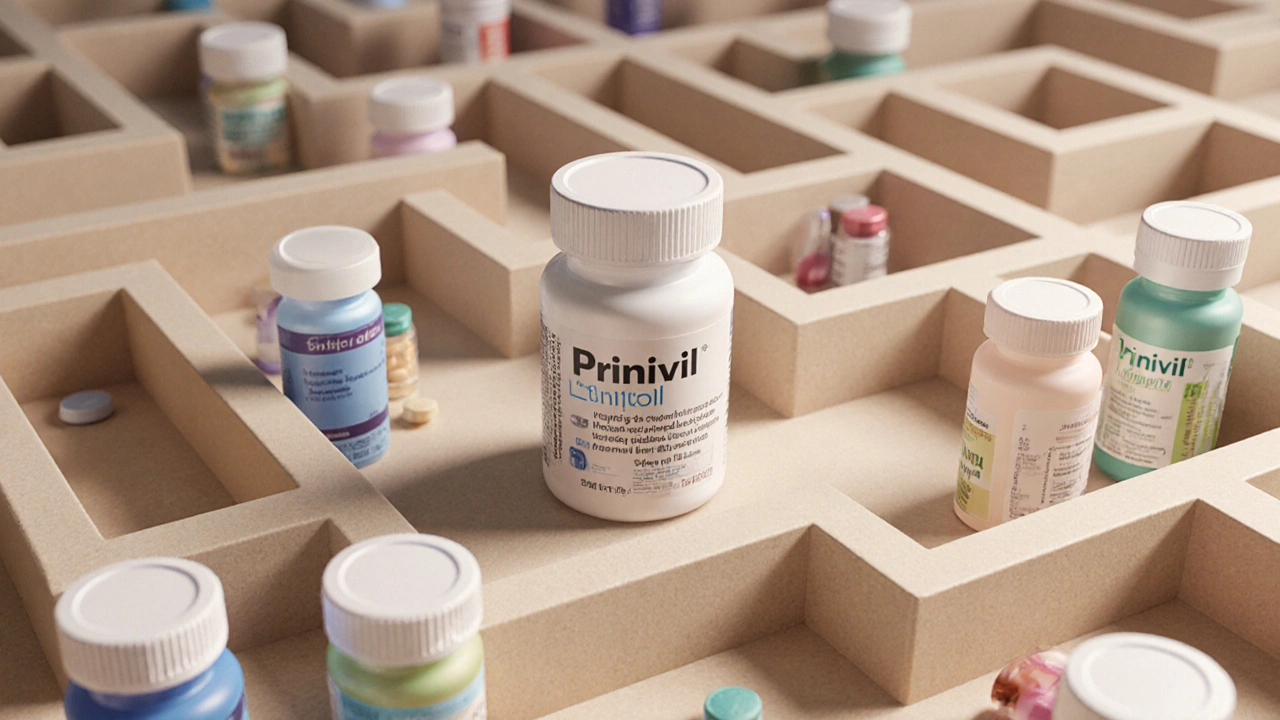Blood Pressure Medication: What You Need to Know
Did you know most adults will need a pill at some point to keep their blood pressure steady? Whether you’ve just started treatment or have been on meds for years, the basics stay the same: know what you’re taking, why it works, and how to use it safely.
Common Types of Blood Pressure Drugs
There are a handful of drug families that doctors reach for first. ACE inhibitors (like lisinopril) relax blood vessels by blocking a hormone that narrows them. ARBs (such as losartan) do a similar job but work on a slightly different part of the same pathway.
Beta‑blockers (for example, atenolol) slow the heart’s beat, which lowers the pressure it pumps against. Calcium channel blockers (like amlodipine) keep the muscles around arteries from tightening. Finally, diuretics (hydrochlorothiazide) help the body dump extra salt and water, easing the pressure on vessel walls.
Each class has its own set of pros and cons, and doctors often combine two or more to hit the target pressure. The key is finding the mix that works for you without causing too many side effects.
How to Take and Manage Your Medication Safely
First thing: follow the prescription label exactly. If a drug says “take once daily,” don’t split the dose or double up if you miss a day—just take the next dose at the regular time.
Watch out for food and other meds. Some ACE inhibitors can cause a cough if you eat salty foods right after. Beta‑blockers may make you feel dizzy if you combine them with certain cold medicines. If you’re unsure, a quick chat with your pharmacist clears it up.
Side effects are normal, but they shouldn’t ruin your day. A mild headache or tiredness often fades in a week. Persistent swelling, severe dizziness, or a rapid heartbeat? Call your doctor—those could signal a dosage adjustment.
Staying on top of blood pressure checks at home helps you see how the meds are working. Aim for readings below 130/80 mmHg if you have high risk factors, but whatever your target, note trends rather than a single number.
When you need to order refills, choose a reputable online pharmacy that requires a prescription, shows a physical address, and offers clear contact info. Look for certifications like the UK’s “MHRA licensed” or the US “FDA registered” badge. Avoid sites that promise ultra‑cheap pills without a script—those are often counterfeit and can be dangerous.
Finally, remember lifestyle matters just as much as the pill. A diet low in sodium, regular walks, and limiting alcohol can boost the effect of your medication. Think of the drug as a teammate, not a magic fix.
By knowing the type of blood pressure medication you’re on, watching for interactions, and buying from trusted sources, you’ll keep your heart happy and your blood pressure in check.
Prinivil (Lisinopril) vs. Common Blood Pressure Medication Alternatives - A Detailed Comparison
A comprehensive, easy‑to‑read comparison of Prinivil (lisinopril) with top blood‑pressure alternatives, covering effectiveness, side effects, costs and how to choose the right drug.
About
Healthcare Information

